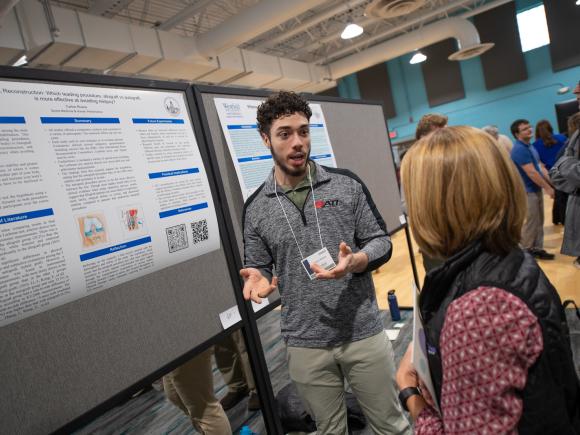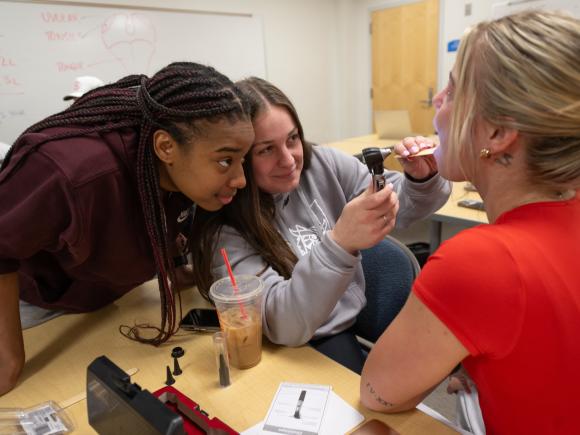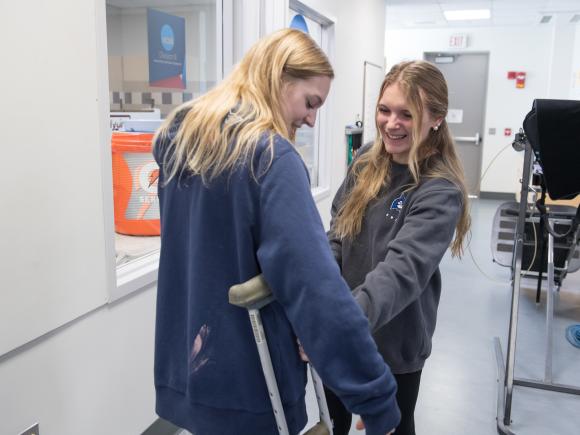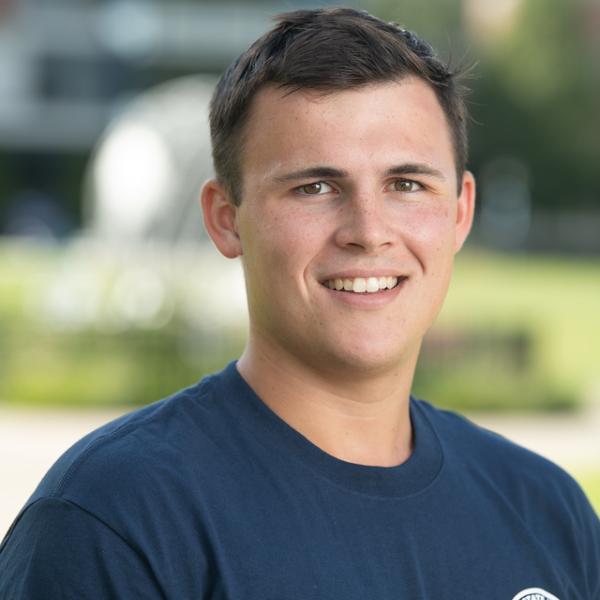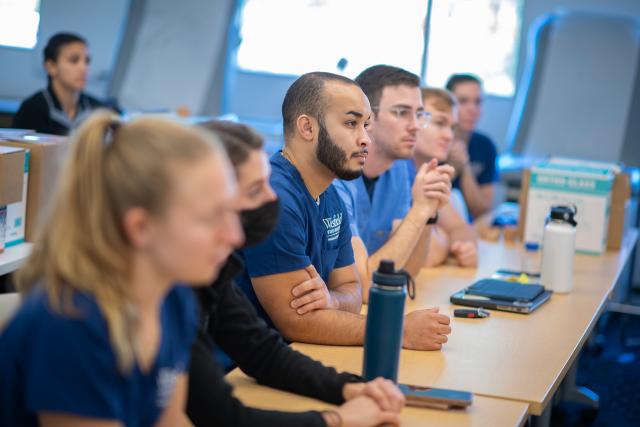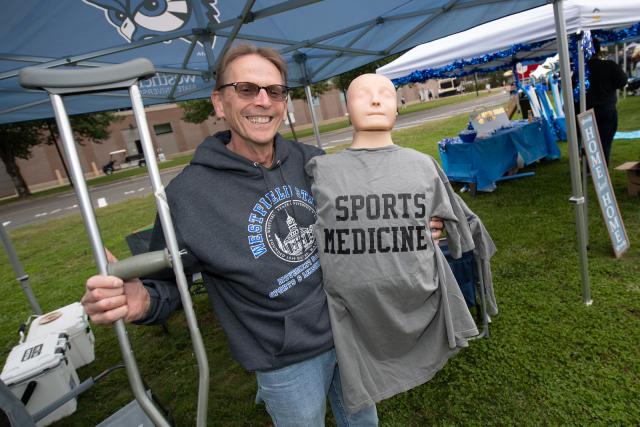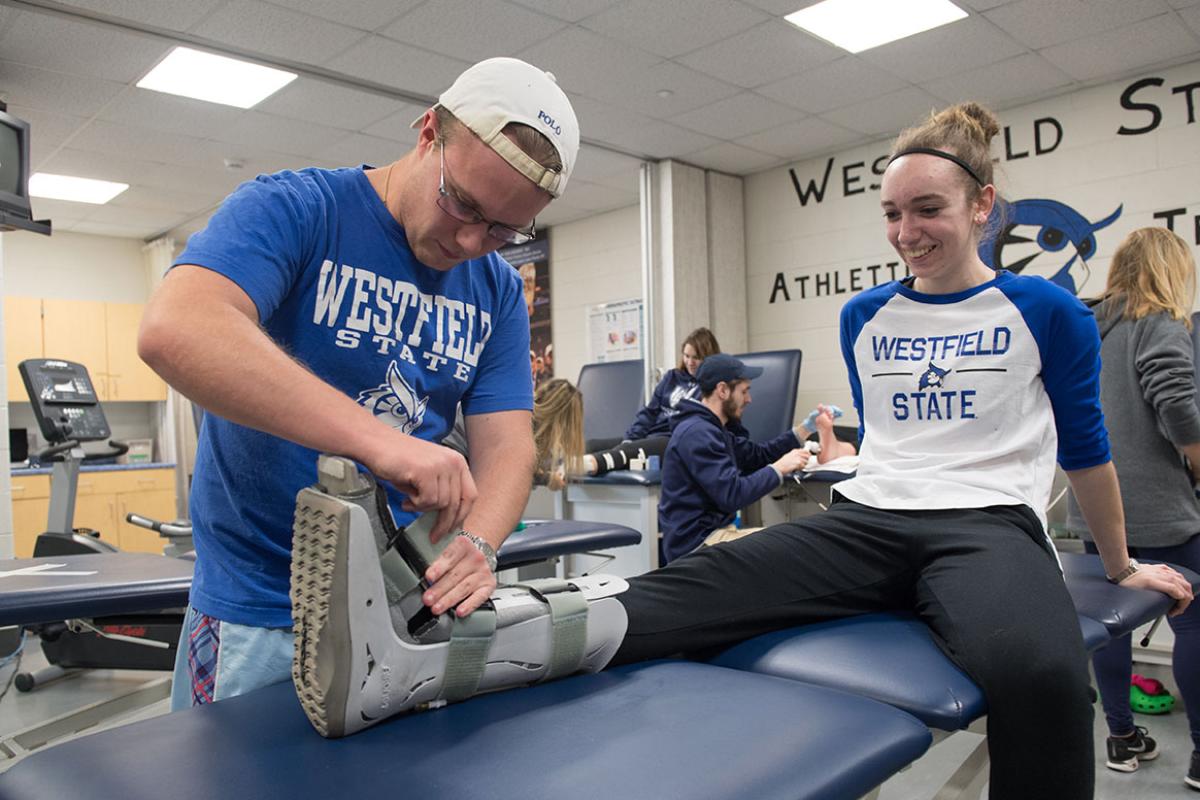
The Sports Medicine concentration at Westfield State University offers a dynamic, pre-professional path for students interested in allied health careers such as physical therapy, occupational therapy, athletic training, and rehabilitation sciences. Designed as a concentration within the Movement Science major, this program combines foundational coursework in human physiology and physical activity with advanced study in injury assessment, therapeutic techniques, and health science.
Through an integrated curriculum, students explore kinesiology, nutrition, exercise physiology, and sport psychology while developing clinical skills in upper and lower extremity injury evaluation, therapeutic exercise, and medical documentation. The program emphasizes evidence-based practice, cultural competence, and inter-professional learning—equipping students with the collaborative problem-solving skills needed in modern healthcare environments.
In addition to completing the 27-credit Movement Science core, students in the Sports Medicine concentration must also earn a related healthcare credential (such as EMT, CNA, PCA, or phlebotomy) and complete coursework aligned with their professional goals. With guidance from faculty advisors, students select electives in biology, chemistry, psychology, or physics that best support graduate school requirements or direct-entry healthcare roles.
Professional development is built into the program, with required benchmarks for Intermediate and Advanced Standing. Students engage in academic, clinical, and community-based activities and develop resumes, personal statements, and career readiness skills to prepare for competitive internships, certifications, or graduate study.
Whether you’re aiming to enter the workforce or pursue advanced education, the Sports Medicine concentration offers a comprehensive, flexible, and student-centered foundation for a future in health and human performance.
